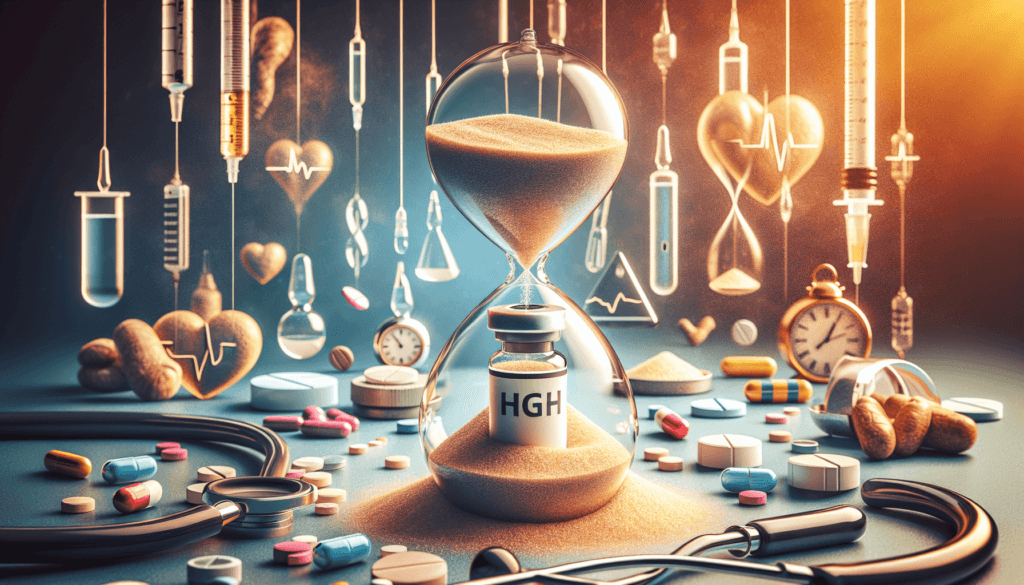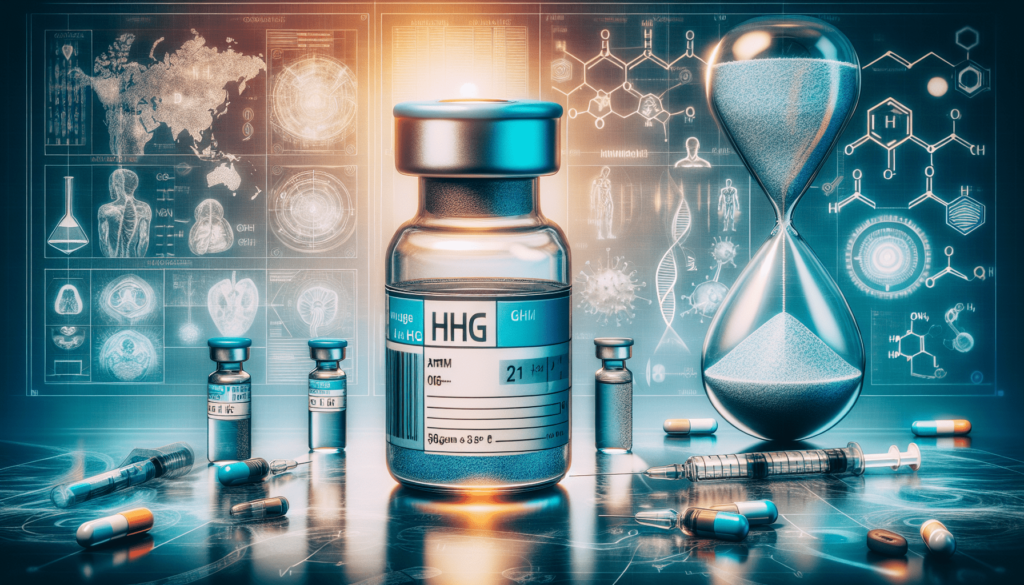Could you imagine a world where the fountain of youth isn’t just a mystical concept but potentially within reach of a needle’s prick? The pursuit of extending human longevity has been an enduring quest, and Human Growth Hormone (HGH) thrusts itself into this narrative quite assertively. The glamorization of HGH, with claims of reversing biological age by up to 20 years, promise a range of transformative benefits that sound almost too good to be true. Yet, where there are substantial benefits, risks tend to lurk in the shadows. What implications might the long-term use of HGH hold for those hoping to reclaim their youthful vigor?

The Promises of HGH
Table of Contents
HGH has captured a great deal of attention for its appealing benefits in the realm of aging. Initially, HGH was recognized solely for its role in stimulating growth in children and adolescents, but its narrative has since encompassed much more.
Biological Age Reversal
One of the most astonishing purported benefits of HGH is its potential to reverse biological aging significantly. Some studies suggest that HGH therapy might roll back the biological clock by up to 20 years. The hormone works to increase lean muscle mass while reducing body fat, improving skin health, increasing bone density, and even elevating mood and cognitive function. With such a promising profile, it’s not surprising many have considered HGH as a miracle therapy for anti-aging.
Enhanced Physical Performance
Another enticing benefit is the enhanced physical capacity HGH offers. For athletes and fitness enthusiasts, HGH is said to improve exercise capacity and muscle strength. The promotion of cell repair and regeneration that HGH facilitates can lead to quicker recovery times, making it a popular choice among those looking to push their physical limits.
Improved Metabolic Function
Additionally, HGH can enhance metabolic functions. A slowed metabolism is a common frustration as age progresses, contributing to weight gain and decreased energy levels. HGH appears to address this by influencing glucose processing and insulin levels, potentially assisting in weight control.
These benefits, taken together, build a powerful argument for the hormone’s use in not just athletic circles but also among aging individuals eager to regain a youthful physical and mental state. However, are these benefits too good to come without a price?
Assessing Long Term Risks
The exploration of HGH doesn’t stop at benefits alone; one must carefully weigh these benefits against possible long-term risks. As with most things that sound incredibly beneficial, it’s critical to venture deeper beyond the glittering surface of HGH’s claims to understand its fuller impact over prolonged periods.
Cardiovascular Concerns
One significant risk associated with long-term HGH use is potential adverse effects on the cardiovascular system. Some research suggests that HGH could lead to increased fluid retention, which can expand blood volume and potentially increase blood pressure levels. Over time, these conditions might stress the cardiovascular system, possibly leading to heart disease or stroke.
Joint and Muscle Pain
While HGH can promote muscle growth and improve joint health, paradoxically, prolonged exposure to the hormone is also associated with increased muscle and joint discomfort. Users may experience swelling, stiffness, and pain due to the imbalance it might cause in the natural biology of the body.
Insulin Resistance
Insulin resistance is yet another area of concern. Although HGH can help in fat metabolism, its interference with insulin can lead to decreased sensitivity, a precursor for type 2 diabetes. Persistent alterations in insulin function due to excessive HGH exposure might shift from being a metabolic booster to a liability.
The Notion of Overdose and Misuse
The concept of “too much of a good thing” becomes particularly relevant when discussing HGH.
Unregulated Use
HGH therapy requires precise medical supervision to be safe. Self-medication or obtaining HGH from non-reputable sources can result in uncontrolled doses that amplify risks without any medical oversight to mitigate adverse effects.
Acromegaly
One of the known syndromes from excessive growth hormone exposure is acromegaly, a condition characterized by abnormal bone and organ growth. This condition is not only visually apparent but can cause significant discomfort and health problems, further emphasizing the importance of regulated use.
HGH and Cancer Risk
The potential link between HGH and cancer is a critical concern that cannot be ignored.
The Role in Cell Growth
HGH’s fundamental role is cell growth regulation, which is a double-edged sword. While it aids in tissue repair and regeneration, there’s a concern that it could also facilitate the growth of existing cancer cells, thus exacerbating certain malignancies.
Monitoring and Prevention
Regular cancer screenings become essential for individuals considering long-term HGH use. An understanding of one’s cancer risk factors is indispensable in deciding whether the potential benefits outweigh the risks.

Legal and Ethical Aspects
The use of HGH isn’t merely a matter of personal choice; it intersects with legal boundaries and ethical dilemmas.
Regulatory Stance
Across many regions, the unsupervised or non-prescriptive use of HGH is illegal. Regulatory bodies frequently caution against its use for anti-aging, emphasizing authorized medical uses only, such as hormone deficiencies in adults.
Ethical Considerations
Ethically, the use of HGH for performance enhancement or anti-aging raises questions of fairness and integrity, particularly in sports settings. Additionally, it composes a discourse on the ethicality of pursuing extreme anti-aging measures that might exploit consumer fears about aging.
Making Informed Decisions
When considering HGH therapy, informed and thoughtful decision-making is key.
Consulting Healthcare Professionals
Before embarking on any form of HGH regimen, consulting with healthcare professionals is imperative. They can provide personalized assessments by considering your individual health profile, family history, and personal risk factors. They can help you consider whether potential benefits eclipse the associated risks in your specific context.
Lifestyle Considerations
Balanced nutrition, regular exercise, and stress management remain foundational to healthy aging. HGH should never replace these core principles but rather, if deemed appropriate, complement them under guided care.
Alternative Approaches
For those uncertain about HGH’s long-term implications, exploring alternatives may also be viable. There are numerous non-hormonal anti-aging strategies ranging from supplements to practices like meditation that have their bases in science and offer peace of mind without compromising long-term health.
Conclusion
So, is the pursuit of youthful vigor worth the risks associated with HGH for aging individuals? The allure of reversing age by two decades is certainly compelling. However, the complex interplay of HGH’s benefits and potential risks should compel individuals toward cautious consideration and informed decision-making.
In the grand tapestry of aging, one thread—like that woven by HGH—may shine brightly, but it is essential to weave with caution and deliberate thought. Through understanding and respect for the nuances of long-term HGH impacts, you can better navigate the journey of not just prolonged life, but well-lived life. The ultimate choice lies with you and should ideally be one that melds hope with pragmatism, dream with reality.





